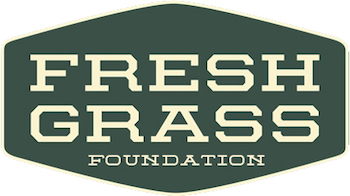Album Review: Eric Bibb, ‘Ridin”

Eric Bibb’s new album Ridin’, his follow-up to 2021’s Dear America, unfolds cinematically, as Bibb traverses the cultural and musical landscapes of contemporary America. Bibb casts a loving, though clear-eyed, gaze at the dark shadows that cover the corners of our land. He peers at the features and figures that emerge from the shades that blot out the bright rays of truth, calling them by their names both to celebrate them and to ensure they live in our memories. He’s joined on the album by a host of special guests, including Taj Mahal, Jontavious Willis, Russell Malone, Amar Sundy, Harrison Kennedy, and Habib Koité.
“Family,” the lead track, opens with gently picked notes from a banjo before blossoming into a funky, bass heavy blues strut. The rapping verses spiral into a call-and-response chorus with Bibb trading vocals with the transcendent background vocals of Paris Renita, Ida Sandlund, Ulrika Bibb, and UMOJA choir (Leonella Bosch, India Scott, Aretha Scott, Linda Butseme, Rachel Idrona Biirah, Nicole Grenhagen, Jasmine Ahmad, Livia Panico).
With its propulsive beat, its sonically stratospheric chorus, and its interplay of crunchy Memphis lead guitars with soaring B3 strains, the song conveys the sometimes jovial, the sometimes bitter, and the sometimes transformative character of conversations among family and friends and enemies in our culture.
The title track rides along a loping bass beat and a slithering slide guitar. The minor chord blues evokes the darkness and danger, as well as the hope and promise, of “riding on the freedom train.” Taj Mahal and Willis help Bibb get down to the bone on “Blues Funky Like Dat,” whose title says it all; it’s propulsive acoustic folk blues that captures the blues of Saturday night at the juke joint and the promise of the blues that are at the center of Sunday morning spirituals.
In the jaunty jazz blues of “The Ballad of John Howard Griffin,” Bibb pays tribute to a now mostly forgotten figure in the Civil Rights movement. The white Texan Griffin underwent procedures to change the color of his skin from white to Black and thus have a vantage point from which to write about racial injustices in the land of Jim Crow. Griffin wrote Black Like Me as a clarion call for whites to engage in Christian love as a means of fostering racial justice.
Bibb opens his somber version of the traditional “500 Miles” with gentle banjo picking, and his version conveys, more than the many other versions out there, the raw emotional yearning of wanting to go home and being prevented from getting there. The striding jump blues “Tulsa Town” rehearses the history of the town before the 1921 Tulsa Race Riots and the devastation following it; the song is followed by a brief instrumental interlude, “Onwards,” which features slowly unfurling layers of steel guitars and conveys the sadness of mourning as well as the exquisite expectation of hope.
The soulful anthem “People You Love” rides along undulating layers of pedal steel, acoustic and electric guitars, piano, and ethereal background vocals. It’s a gorgeous ode to those around us—both present and departed—who “every day bring Heaven closer to you.” The album closes with the deeply moving “Church Bell,” a Celtic-inflected instrumental that features a sonic quilt of resonator guitar, fiddle, piano, and cittern.
On Ridin’, Bibb invites us to accompany him on a transformative musical journey that moves our souls and changes our hearts.
###
Ridin’ is available HERE.
Resources
EricBibb.com
Music & Merch
Tour
Follow at:
Instagram – @ericbibbmusic
Facebook – @EricBibbMusic
Twitter – @ericbibb



